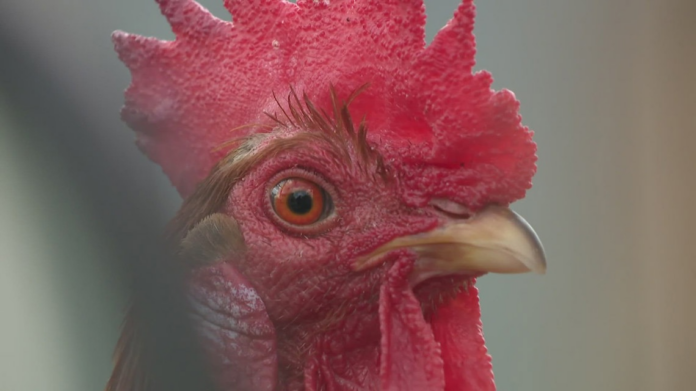Maryland Agriculture Secretary Kevin Atticks confirmed that sick birds have been quarantined following a single positive case of avian influenza, assuring residents there’s no need to change their diets.
CAROLINE COUNTY, Md. — A case of avian flu (H5N1) has been detected at a poultry farm in Maryland’s Caroline County, located on the Eastern Shore near the Delaware border. The Maryland Department of Agriculture made the announcement Friday, with federal confirmation from the U.S. Department of Agriculture expected within days.
Atticks emphasized that the disease does not impact the safety of poultry meat or eggs, stating, “HPAI does not affect poultry meat or egg products, which remain safe to eat and handle.” He noted that the Maryland Department of Agriculture, local health authorities, USDA, and partner organizations are actively managing the situation by quarantining and testing nearby flocks.
This marks Maryland’s first poultry farm bird flu case since 2023 and the third case in 30 days on the Delmarva Peninsula, which spans Maryland’s Eastern Shore and Delaware. In recent weeks, two individuals in Kent County, Delaware, tested positive for avian flu. On Monday, the Centers for Disease Control and Prevention (CDC) reported one fatal case in Louisiana involving an individual over 65 who had been handling sick and dead birds.
Since March 2024, there have been 66 confirmed cases of bird flu infections in humans in the U.S., primarily among dairy and poultry workers. Most cases have been described as mild by medical experts.
To help combat the spread of bird flu, the Maryland Department of Agriculture issued biosecurity guidelines:
Safety Measures to Prevent Bird Flu Spread
- Clean and disinfect vehicles and equipment: Avoid areas with waterfowl or wildlife feces. If unavoidable, clean shoes, vehicles, and equipment thoroughly before returning to your flock.
- Secure feed storage: Remove spilled or uneaten feed promptly and ensure storage units are sealed to keep out wild birds and rodents, which can carry HPAI.
- Limit visitors: Only those who directly care for your poultry should have contact with your birds. Visitors must adhere to strict biosecurity practices.
- Practice proper hygiene: Wash hands thoroughly with soap and water before and after handling poultry. Hand sanitizers are less effective on soiled hands.
- Use protective gear: Provide disposable boot covers or disinfectant footbaths. Clean boots and shoes with a scrub brush before using a footbath.
- Change clothing: Wear protective outer garments or disposable coveralls and change clothes before entering and exiting poultry areas.
- Disinfect tools and equipment: Clean all items before moving them to a new facility, including vehicles, tools, and egg containers. Avoid reusing items that cannot be disinfected, such as cardboard egg flats.
Maryland agriculture officials continue to monitor the situation closely to ensure public health and food safety while working with local and federal partners to contain the outbreak.




